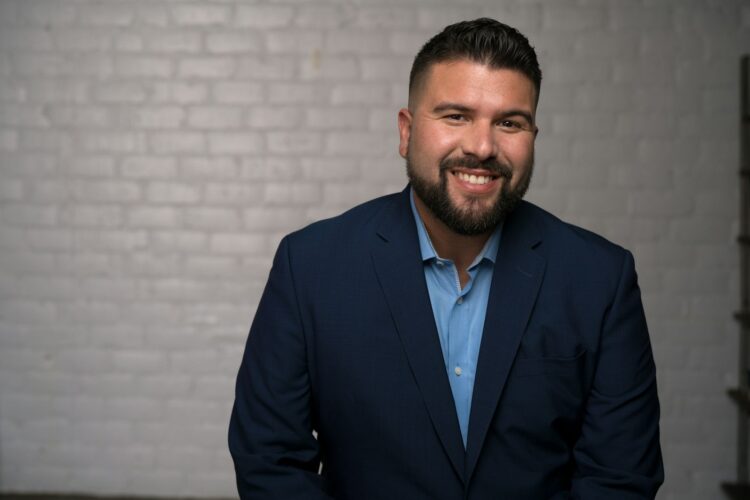
These phrases might sound casual, even harmless. But they often carry a heavier subtext: emotional discomfort, avoidance, and fear of vulnerability. Let’s unpack what men really mean when they say these things and why it matters.
“I don’t want to talk about it.”

Translation: “I feel something, but I’d rather not deal with it, especially not out loud. This phrase is a full stop, a verbal hand raised in defense. It’s not that nothing’s wrong—it’s that addressing what’s wrong feels too overwhelming, too unfamiliar, or too dangerous emotionally. Often, it’s a learned behavior. Many boys grow up being taught that emotional expression equals weakness, so as adults, silence feels safer than stumbling through feelings.
“Can we talk about this later?”

Translation: “I need time to escape, not to think.” On the surface, this sounds like a reasonable request—delaying a discussion until a better moment. But when this phrase keeps coming up, it’s usually a stalling tactic. The intention isn’t to revisit the issue; it’s to hope it disappears. Men may say this when they feel ambushed by emotion, caught off guard, or simply unequipped to respond meaningfully in the moment. The problem? “Later” often becomes “never.”
“You’re overreacting.”

Translation: “Your emotions are making me uncomfortable, so I’ll label them irrational.” This one flips the script. Instead of engaging with someone else’s emotional truth, it casts judgment on the intensity of their feelings. It’s a tactic used to invalidate and deflect—a way to avoid having to take emotional responsibility or admit wrongdoing. For the person on the receiving end, it can feel like gaslighting.
“It’s not a big deal.”

Translation: “I don’t want to talk about how much this actually bothered me.” Men often use this phrase when they’re trying to suppress hurt, disappointment, or anxiety, especially when they believe acknowledging it will make them look weak. The irony is that dismissing the issue can make it loom larger in the long run. What’s “not a big deal” might be precisely what’s eating away at trust, communication, or self-esteem.
“I’m just tired.”

Translation: “I don’t have the bandwidth to engage emotionally—or I don’t want to.” Fatigue can be real, of course, but this phrase is often code for emotional withdrawal. It’s a polite-sounding escape hatch when a deeper conversation is bubbling up. It suggests that emotional intimacy is an effort men don’t feel equipped for, especially after a long day. The message underneath? “I’d rather recharge in silence than dive into something messy and emotional.”
“I don’t know how to explain it.”

Translation: “I do feel something, but it’s tangled—and saying it out loud makes me vulnerable.” This phrase hints at internal chaos. Men who weren’t raised to process or articulate feelings may genuinely struggle to find the words. But often, it’s also used to shut down the conversation entirely, turning complexity into a dead end. Instead of trying, it’s easier to say, “I can’t.”
“Let’s not ruin the mood.”

Translation: “Don’t bring your complicated feelings into this nice, emotionally neutral space.” This phrase is often said during a good moment—on a date, during intimacy, or at a family gathering, when one person wants to bring up something serious. It’s not that the man doesn’t know the issue matters; he just doesn’t want to confront it right now (or possibly ever). Emotional conversations feel risky as if they might taint the good vibes.
“You always bring this up.”

Translation: “I’ve heard this before, and I still don’t want to deal with it.” This is a defensive maneuver, one that frames the other person as the problem. Instead of engaging with the content of what’s being said, it attacks the repetition. But repeated conversations usually mean an issue hasn’t been resolved, not that the person bringing it up is unreasonable. This phrase can shut down dialogue by making the speaker feel like a nag instead of a partner.
“I’m fine.”

Translation: “I’m definitely not fine, but you’re not getting past this wall.” Possibly the most universal emotional deflection ever spoken. “I’m fine” is rarely true when it’s said with clenched teeth, a distant tone, or a hollow smile. It’s a cover-up—a way to signal that something is wrong without having to name it. For men in particular, saying “I’m fine” feels safer than saying “I’m scared,” “I’m hurt,” or “I feel lost.” But it shuts others out, leaving both parties feeling more alone.
“This again?”

Translation: “I’m tired of this conversation—not because it’s invalid, but because it’s uncomfortable.”This phrase expresses frustration, but it’s also a signal that emotional patterns are being repeated without resolution. Men may say this when they feel nagged or criticized, but it often reveals a deeper problem: a lack of tools to address the core issue. Instead of facing the discomfort, they hope the annoyance will make the problem disappear. Spoiler: it doesn’t.
“It’s not worth fighting over.”

Translation: “I’d rather sweep this under the rug than sit in the mess. Conflict feels like a danger to many men, and not just relationally, but existentially. It triggers old fears of losing control, failing, or being judged. This phrase seems peaceful, even mature, but it’s often used to silence tension prematurely. In reality, if something bothers one person deeply, then yes, it’s worth talking through, even if it’s hard.
“Whatever.”

Translation: “I’m done here—emotionally and conversationally.” A verbal door slam. “Whatever” cuts off the connection fast. It’s often used when emotions run high, but words fail or when anger masks deeper feelings like sadness or fear. While it may feel like a neutral end to the argument, it often escalates tension by signaling contempt or disinterest. It doesn’t solve anything; it just builds resentment.
“Let’s just move on.”

Translation: “I want closure without the discomfort of actually resolving anything.” This phrase pushes for a quick reset but usually comes too soon. Men may say this to avoid the hard work of emotional reconciliation, especially if they fear being blamed or misunderstood. But moving on without understanding what happened leads to a shallow peace—one that breaks the moment the next problem arises.
“You’re being too emotional.”

Translation: “Your feelings are too intense for me to handle, so I’ll make them your problem.” This phrase discredits emotion as irrational or excessive, positioning logic as the superior mode of communication. But emotion isn’t the enemy, disconnection is. By labeling someone as “too emotional,” men avoid acknowledging their own discomfort and effectively shut down the possibility of a real, vulnerable exchange.
“That’s just how I am.”

Translation: “I’ve decided not to grow in this area—please stop expecting change.” This phrase presents personality as permanent, which is rarely true. It’s a way of opting out of emotional accountability while sounding self-aware. Men who say this may genuinely feel trapped by old habits, or they may fear that changing will make them lose a sense of control.

